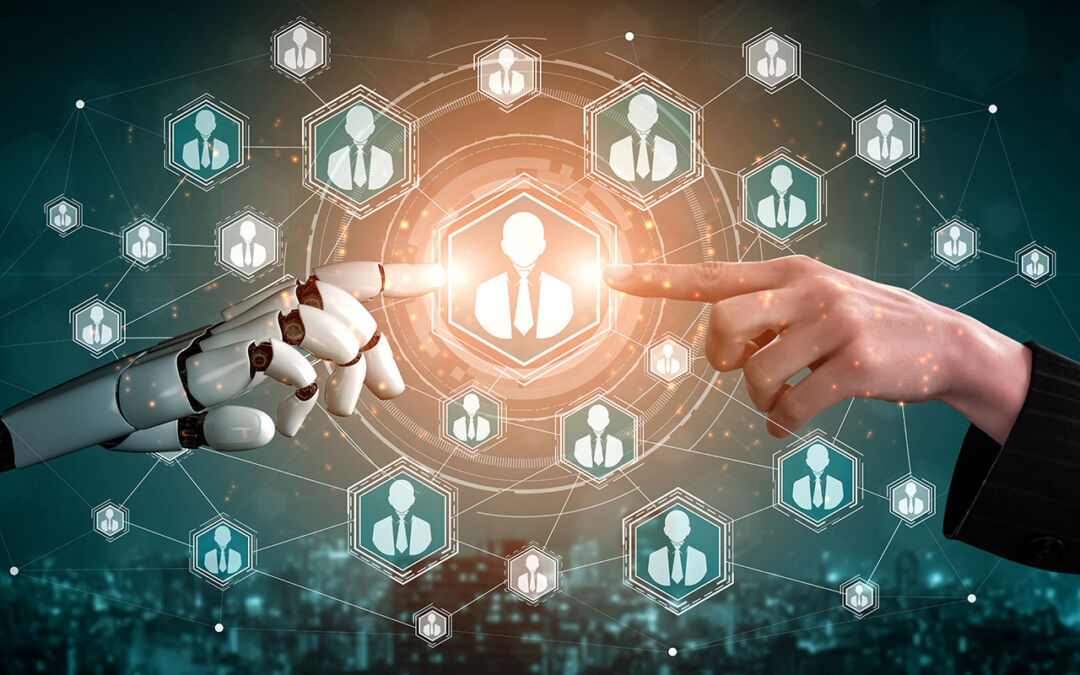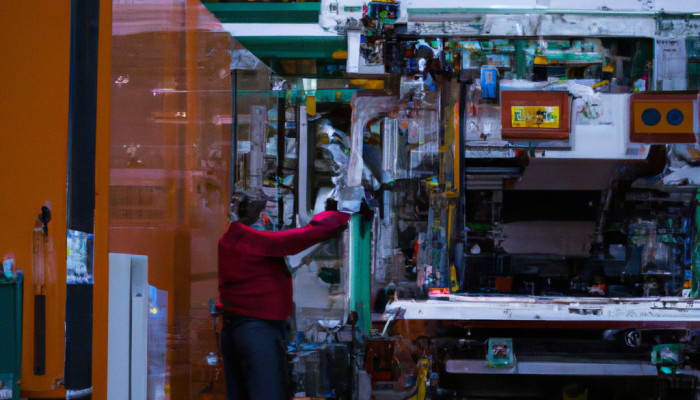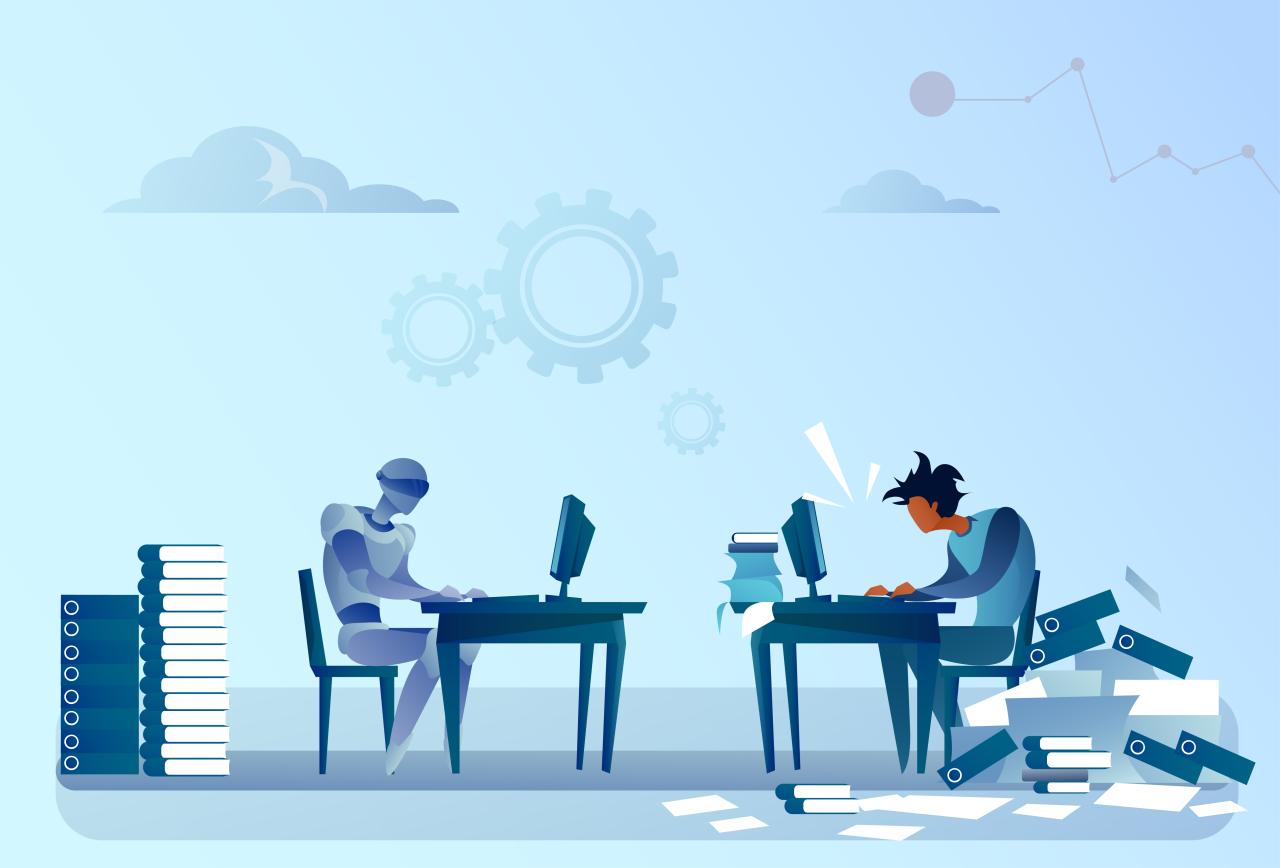
Will Robots and AI Make Your Job Less Meaningful?
Will robots and AI make your job less meaningful? It’s a question bouncing around in a lot of minds these days, and honestly, it keeps me up at night sometimes. The rise of automation is undeniable, and it’s changing the landscape of work in profound ways. We’re seeing robots taking over repetitive tasks in factories, AI handling customer service inquiries, and algorithms crunching data at speeds humans simply can’t match.
But what does this mean for the human element? Are we destined to become obsolete, or can we adapt and find new meaning in a world increasingly shaped by machines?
This isn’t just about job security; it’s about the very essence of our work lives. What gives our jobs value? Is it simply the paycheck, or is there something more – a sense of purpose, a feeling of accomplishment, a connection to something larger than ourselves? As AI and robots take on more responsibilities, will we lose that sense of meaning?
Let’s explore this complex question and see what we can uncover.
The Evolution of Job Roles in the Age of AI

The rise of artificial intelligence and robotics is undeniably reshaping the landscape of work. While anxieties about job displacement are valid, the reality is far more nuanced. AI isn’t simply replacing jobs; it’s fundamentally altering them, creating new roles and transforming existing ones. This evolution necessitates a shift in our understanding of work, skills, and training, fostering a collaborative relationship between humans and AI.The integration of AI is not about humans versus machines, but rather humanswith* machines.
The future of work involves leveraging AI’s strengths—speed, data processing, and pattern recognition—to augment human capabilities, leading to increased efficiency and innovation. This requires a focus on developing skills that complement AI, rather than competing with it.
New Job Roles Created by AI and Robotics
The advancement of AI and robotics has already spurred the creation of numerous new job roles. These roles often focus on developing, implementing, maintaining, and ethically managing AI systems. For example, AI trainers fine-tune algorithms, ensuring they perform accurately and ethically. Prompt engineers craft effective instructions for AI models, maximizing their output. Data scientists analyze vast datasets to inform AI development and deployment.
Robotics engineers design, build, and maintain robots, while AI ethicists address the ethical implications of AI systems. The demand for these specialized roles is rapidly growing, demonstrating the creation of entirely new career paths within the tech sector and beyond.
The Evolution of Existing Roles Through AI Integration
Many existing professions are evolving to incorporate AI as a tool, rather than being replaced by it. Consider radiologists, for example. AI can assist in identifying potential anomalies in medical images, speeding up diagnosis and reducing the workload on radiologists. This allows radiologists to focus on more complex cases and spend more time interacting with patients. Similarly, lawyers can use AI to research case law and precedents, freeing them up for strategic thinking and client interaction.
Teachers can leverage AI-powered tools for personalized learning, tailoring their instruction to individual student needs. The core responsibilities of these professions remain, but AI enhances their efficiency and effectiveness.
Skills and Training for Thriving Alongside AI
To thrive in this evolving workplace, individuals will need a blend of technical and soft skills. Technical skills might include proficiency in data analysis, programming, or specific AI tools. Equally crucial are soft skills such as critical thinking, problem-solving, creativity, and adaptability. The ability to collaborate effectively with AI systems and interpret their output is essential. Continuous learning and upskilling will be vital, requiring a commitment to lifelong education and professional development.
This includes embracing online courses, bootcamps, and other opportunities to acquire new skills and adapt to emerging technologies.
Will robots and AI make your job less meaningful? It’s a question on many minds, especially considering the larger societal implications of information control. The recent lawsuit, where the fbi sued for withholding records of facebook censorship of hunter biden laptop story , highlights how easily narratives can be manipulated, impacting everything from elections to job markets.
This kind of control, whether by algorithms or government agencies, raises serious questions about the future of work and the very meaning of human contribution.
Examples of AI Augmentation in Existing Professions
The following examples illustrate how AI could augment or change the core responsibilities of several professions:
- Doctors: AI can analyze medical images, predict patient outcomes, and personalize treatment plans, allowing doctors to focus on patient care and complex diagnoses.
- Writers: AI writing tools can assist with research, grammar checking, and generating initial drafts, freeing writers to focus on creativity and storytelling.
- Financial Analysts: AI can automate data analysis, identify market trends, and assess risk, allowing analysts to focus on strategic decision-making and client relationships.
- Customer Service Representatives: AI-powered chatbots can handle routine inquiries, freeing representatives to handle more complex issues and build stronger customer relationships.
- Manufacturers: AI-powered robots can automate repetitive tasks, improving efficiency and allowing human workers to focus on more complex and skilled tasks such as maintenance and quality control.
The Role of Human Creativity and Critical Thinking: Will Robots And Ai Make Your Job Less Meaningful

The rise of AI and automation understandably sparks anxieties about job displacement. However, a crucial aspect often overlooked is the enduring importance of uniquely human skills, particularly creativity, critical thinking, and complex problem-solving. These abilities, which lie at the heart of many meaningful professions, are far less susceptible to automation than rote tasks.Tasks requiring creativity, critical thinking, and complex problem-solving are less susceptible to automation because they demand a level of nuanced understanding, intuition, and adaptability that current AI systems struggle to replicate.
I’ve been pondering the impact of AI on our jobs lately – will it truly diminish the meaning we find in our work? It’s a big question, especially when you consider the scale of events like the devastating Hurricane Ian, which, as reported in this article hurricane ian strengthens to extremely dangerous category 4 as florida braces for impact , is causing widespread destruction and highlighting the human need for resilience and connection.
Perhaps facing such challenges makes us appreciate the human element in our jobs even more, regardless of automation.
While AI can excel at processing vast amounts of data and identifying patterns, it lacks the capacity for genuine originality, insightful judgment, and the ability to navigate ambiguous situations requiring ethical considerations or emotional intelligence. The human element remains crucial in situations demanding flexible thinking and innovative solutions beyond pre-programmed parameters.
Examples of Jobs Requiring Irreplaceable Human Judgment
Many professions rely heavily on human judgment and intuition, making them relatively safe from immediate automation. For instance, surgeons require not only technical skill but also the ability to adapt to unexpected complications during surgery – a skill that demands real-time decision-making far beyond the capabilities of current AI. Similarly, lawyers need to interpret complex legal precedents and argue cases persuasively, requiring both analytical prowess and an understanding of human psychology and motivation.
I’ve been thinking a lot lately about how robots and AI might change our jobs, and whether that will make our work feel less fulfilling. It’s a big question, and honestly, sometimes it feels overwhelming. It reminds me of how unexpected things can happen, like the low COVID-19 mortality rate in young people, as highlighted in this official study: covid 19 mortality in england extremely rare among under 20s official study.
That unexpected data shift really made me consider how unpredictable the future of work – and life – really is, further emphasizing the anxieties surrounding AI and job displacement.
Similarly, skilled negotiators in business deals require deep understanding of human dynamics, not simply data analysis, to achieve successful outcomes. Creative professionals like writers, artists, and musicians also rely on imagination, emotional expression, and original thought processes that remain firmly in the human domain.
Tasks Likely to Remain Meaningful for Humans
Even with advanced AI integration, numerous tasks will continue to be meaningfully performed by humans. These include roles that demand empathy and emotional intelligence, such as therapists, social workers, and teachers. Furthermore, jobs requiring complex communication and interpersonal skills, such as leadership roles, sales, and customer service, will continue to thrive. The ability to build and maintain relationships, inspire teams, and understand nuanced human needs are essential elements that AI currently lacks.
Finally, professions requiring original thinking and creative problem-solving, like scientific research, design, and strategic planning, will remain uniquely human domains.
Visual Representation of Automated vs. Uniquely Human Tasks, Will robots and ai make your job less meaningful
Imagine a Venn diagram. One circle represents “Automated Tasks,” filled with icons depicting repetitive, data-driven processes like data entry, basic accounting, and simple manufacturing. The other circle represents “Uniquely Human Tasks,” containing icons illustrating creative endeavors such as artistic expression, strategic planning, and complex problem-solving in healthcare or legal fields. The area where the circles overlap shows tasks where AI assists humans, like data analysis for research or AI-aided design.
The significantly larger area of the “Uniquely Human Tasks” circle emphasizes the vast scope of human skills that remain irreplaceable, highlighting the continuing importance of creativity, critical thinking, and complex problem-solving in a world increasingly shaped by AI.
Addressing the Potential for Job Displacement
The rise of AI and automation presents a significant challenge: the potential displacement of workers from their jobs. While technological advancements offer incredible opportunities, we must proactively address the very real anxieties surrounding job security and economic disruption. Failing to do so risks exacerbating existing inequalities and creating social unrest. A multifaceted approach, involving individual adaptation, government intervention, and corporate responsibility, is crucial to navigate this transition successfully.The impact of automation on employment varies significantly across sectors.
Some roles, particularly those involving repetitive or manual tasks, are more vulnerable to automation than others. However, even highly skilled professions are experiencing transformations as AI-powered tools enhance productivity and efficiency. This necessitates a shift in focus from simply retaining existing jobs to fostering adaptability and developing skills relevant to the evolving job market.
Strategies for Mitigating the Negative Impact of Job Displacement
Mitigating the negative impact of job displacement requires a proactive and comprehensive strategy. This involves a combination of upskilling and reskilling initiatives, social safety nets, and policies that encourage the creation of new, high-quality jobs. For example, governments could invest in infrastructure projects that require human labor, while also promoting entrepreneurship and innovation to stimulate job creation in emerging sectors.
Furthermore, a strong social safety net, including unemployment benefits and robust social welfare programs, can provide crucial support to those affected by job losses. The goal is to create a system that offers a cushion during the transition, allowing individuals time to adapt and find new employment opportunities.
Retraining and Upskilling Approaches
Different approaches to retraining and upskilling exist, each with its strengths and weaknesses. Traditional vocational training programs offer structured learning paths, providing workers with specific skills needed for particular jobs. However, these programs can be slow and may not adapt quickly enough to the rapidly changing technological landscape. Conversely, online learning platforms and micro-credentialing programs offer greater flexibility and accessibility, allowing workers to learn at their own pace and acquire specific skills as needed.
However, the lack of structured guidance and potential for credential inflation are concerns that need addressing. A blended approach, combining traditional apprenticeships or on-the-job training with online learning modules, could offer the most effective solution, providing both structured learning and the flexibility to adapt to emerging needs.
Government Policies and Corporate Initiatives Supporting Worker Transitions
Government policies play a crucial role in supporting workers transitioning to new roles. This includes funding for retraining programs, providing tax incentives for businesses that invest in employee upskilling, and expanding access to affordable education and training. For instance, the German apprenticeship system serves as a model for effective government-industry collaboration in providing vocational training. Similarly, corporate initiatives, such as internal training programs and tuition reimbursement, can help employees adapt to the changing demands of their jobs.
Companies that invest in their workforce are more likely to retain talent and maintain a competitive edge in the long run. Furthermore, partnerships between educational institutions, government agencies, and businesses are essential for creating effective and relevant training programs that meet the needs of both employers and employees.
A Hypothetical Retraining Program
Imagine a retraining program specifically designed for workers displaced by automation in the manufacturing sector. This program, called “Future Forward Manufacturing,” would combine theoretical and practical training. The first phase would focus on digital literacy, data analysis, and basic programming skills. Participants would learn to use software for design, simulation, and production management. The second phase would introduce specialized training in areas like robotics maintenance, AI-powered quality control, and advanced manufacturing techniques.
This would involve hands-on experience with cutting-edge technologies in a simulated factory environment. Finally, the program would include career counseling and job placement services, helping participants identify and secure new roles in the evolving manufacturing landscape, potentially in areas like automation engineering, data science, or process optimization. This program would incorporate partnerships with local manufacturers, offering internships and apprenticeships to ensure participants gain practical experience and make valuable connections.
This holistic approach would not only equip workers with new skills but also provide the support needed to successfully transition into meaningful and fulfilling careers.
Redefining Meaningful Work in a Changing Landscape

The rise of AI and robotics is undeniably reshaping the nature of work, prompting a critical re-evaluation of what constitutes “meaningful work.” No longer can we solely define it by factors like salary or job security; the very essence of purpose and fulfillment in our professional lives is undergoing a transformation. This shift necessitates a deeper understanding of intrinsic motivation and the role of personal values in shaping job satisfaction, especially as automation increasingly handles routine tasks.The evolving definition of meaningful work considers factors beyond the purely transactional.
While financial stability remains crucial, the increasing automation of mundane tasks allows individuals to focus on more creative, strategic, and human-centric aspects of their roles. This shift empowers employees to seek work that aligns with their personal values and passions, leading to greater job satisfaction and a stronger sense of purpose. This isn’t just about finding a “passion project”; it’s about integrating personal values into the fabric of one’s professional life, leading to a more holistic and fulfilling experience.
Intrinsic Motivation and Personal Values in Job Satisfaction
Intrinsic motivation, driven by internal rewards like a sense of accomplishment or personal growth, becomes paramount in a world where many routine tasks are automated. Employees are no longer solely motivated by external factors like salary or promotions. Instead, the focus shifts to finding work that allows for creativity, problem-solving, and the application of unique skills and talents.
The alignment of personal values with the work itself becomes a key determinant of job satisfaction. For example, an individual who values environmental sustainability might find greater meaning in a role focused on renewable energy, even if it pays slightly less than a comparable role in a different sector. Similarly, a person who values social impact might find fulfillment in a non-profit organization, prioritizing the positive contribution over purely financial gain.
The shift is towards a more values-driven approach to career choices.
Assessing the Meaningfulness of Current Roles
A simple self-assessment can help individuals gauge the meaningfulness of their current roles. Consider the following questions:To what extent does my work align with my personal values?How much autonomy and control do I have over my tasks?Do I feel a sense of accomplishment at the end of the workday?Do I feel challenged and stimulated by my work?Does my work contribute to something larger than myself?How much do I feel appreciated and valued by my employer and colleagues?Answering these questions honestly can provide valuable insights into the level of meaning and fulfillment derived from one’s current work, paving the way for potential adjustments or career shifts.
The focus should be on honest self-reflection, leading to a more conscious and fulfilling professional journey.
The future of work in the age of AI and robots is undoubtedly uncertain, but it’s not necessarily bleak. While some jobs will inevitably be displaced, others will evolve, and entirely new opportunities will emerge. The key to navigating this transition lies in embracing lifelong learning, developing skills that complement AI, and focusing on the uniquely human qualities that machines simply can’t replicate – creativity, critical thinking, emotional intelligence, and the ability to connect with others on a deeper level.
Finding meaning in our work isn’t about escaping automation; it’s about finding our place within it, shaping the future of work, and ensuring that human ingenuity and empathy remain at the heart of it all. It’s time to start thinking proactively about how we can adapt and thrive in this rapidly changing world.



